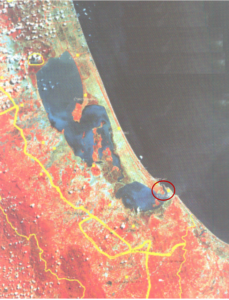Community-led Mangrove Rehabilitation Model in the outer Songkhla Lake, Songkhla Province.
In mangrove forest restoration, in addition to academic techniques, it is also necessary to give importance to community participation because the community is the real mechanism and social power in natural resource management. This project aimed to restoration and afforestation of mangrove forest at the outlet of the Songkhla Lake and its sustainable use. The concept of the project was based on the same ideas as the Rio Declaration regarding the close links of both social and environmental issues.

Objectives of the project :
– To motivate the community on understanding the value of mangrove ecosystem.
– To investigate the Integrated Coastal Zone Management (ICZM) process for promoting community involvements in mangrove rehabilitation programme.
– To develop a partnership between the community and the government sector to work together


Achievements during the three years project period:
- Healthy mangrove plantation over an area of 50 Ha.
- Increase of the species diversity in the area.
- Organization of the community and formation of Mangrove Rehabilitation Club (MRC).
- Creation of the understanding of the government on the needs of the local community and the way of the planning should be carried out.
- Development of the process beyond the mangrove rehabilitation i.e. Marine Sanctuary, Initiation of ecotourism development etc.
Recommendations
- Mangrove rehabilitation should direct towards the institutional setup to local community work together with government sector.
- The design of the mangrove rehabilitation should be considered as a basis for strengthening the community capable to express the needs and direct to other project implementation with the local government.
- In a successful mangrove rehabilitation program there should be a mediator g. mangrove rehabilitation club or academia to catalyze the process.